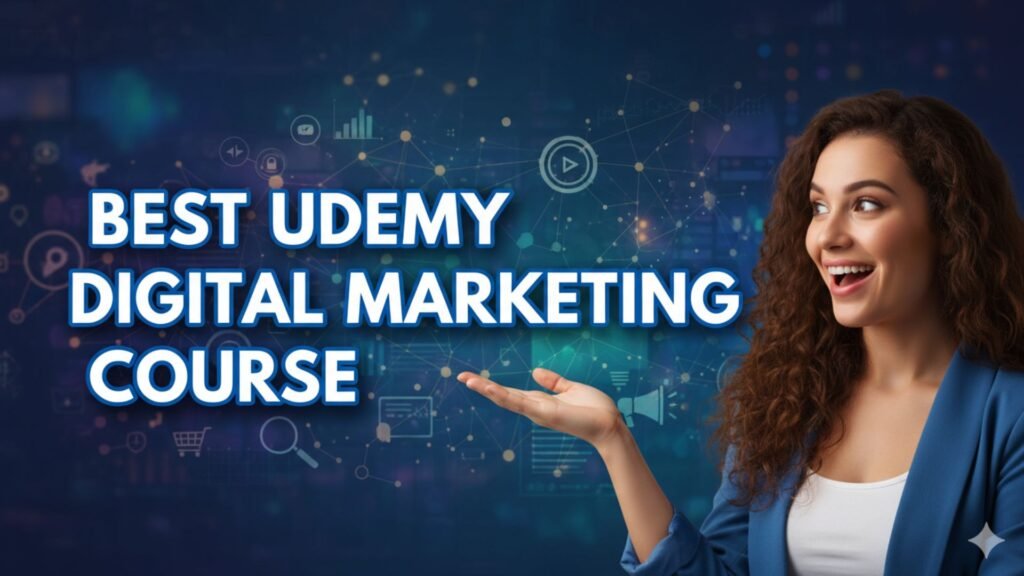The Definitive Guide on How Digital Marketing Affects Consumer Behaviour:
Introduction:
The modern marketplace is fundamentally a digital one. To truly grasp the essence of modern commerce, one must understand precisely how digital marketing affects consumer behaviour. Digital strategies are no longer a supplement to traditional advertising; they are the primary architects of the customer journey, fundamentally reshaping how individuals discover, evaluate, and purchase products or services.
Digital marketing’s influence operates on a spectrum—from the subtle, repeated exposure of a brand logo to the highly personal prompt of a retargeted ad. This guide explores the mechanisms by which these digital touchpoints transform human purchasing patterns and brand loyalty.
Reshaping the Consumer Journey: From Linear to Looped:
The traditional, linear AIDA (Awareness, Interest, Desire, Action) model has evolved into a complex, non-linear loop driven by digital interaction. Digital marketing inserts itself at every stage, offering consumers immediate information and validation, which drastically shortens or alters the consumer decision-making cycle.
Awareness and Discovery Through Intent:
Before the digital age, awareness was built via billboards and TV ads. Today, it’s driven by the consumer’s intent.
- Search Engine Optimization (SEO): When a consumer searches for a solution (e.g., “best ergonomic chair”), SEO ensures your content is the immediate, authoritative answer. This preemptive positioning affects behaviour by establishing your brand as a resource before the consumer is even ready to buy.
- Content Marketing: High-quality blog posts, videos, and guides nurture the consumer from a position of curiosity to one of readiness. This process builds trust, a critical psychological precursor to conversion.
Consideration and Validation through Social Proof:
Once aware, modern consumers immediately seek third-party validation, bypassing brand-controlled messaging.
- Online Reviews and Ratings: User-Generated Content (UGC) is the new word-of-mouth. Digital platforms allow consumers to instantly evaluate a product based on thousands of testimonials. A strong rating fundamentally shifts behaviour toward trust and away from hesitation.
- Social Media Engagement: Brand interactions, comments, and shares on platforms like Instagram and TikTok serve as instantaneous social proof, confirming that the product is desirable and reliable.
The Psychological Levers of Digital Marketing:
Digital marketing tools excel at leveraging core psychological triggers to influence action. This is the heart of how digital marketing affects consumer behaviour, moving beyond simple exposure to true motivation.
Personalization and Reciprocity:
The use of data to tailor content, emails, and ads creates a powerful feeling of being understood.
- Targeted Advertising: Retargeting ads remind consumers of previously viewed items. This is not simply a reminder; it acts on the principle of commitment and consistency, urging the consumer to complete the purchase they’ve already started to commit to.
- Behavioral Email: Sending a discount code on an abandoned cart item or a personalized birthday offer taps into the principle of reciprocity, encouraging a purchase as a ‘thank you’ for the brand’s attention.
Scarcity, Urgency, and the Fear of Missing Out (FOMO):
Digital platforms provide the perfect delivery system for urgency cues.
- Countdown timers for flash sales, “Only 3 left in stock” notifications, and “Offer ends in 24 hours” are all strategies that leverage the FOMO principle, forcing a rapid, often emotional, purchase decision instead of a prolonged, rational evaluation. To truly master this discipline, it is essential to have a detailed understanding the core link between consumer psychology and digital strategy (FOMO).
Key Digital Channels and Their Specific Impact:
Each digital channel provides a unique mechanism for altering consumer behaviour:
|
Digital Channel |
Primary Behavioural Impact |
Mechanism of Influence |
|
Search Engine Marketing (SEM/PPC) |
Capture Intent: Influencing the consumer at the exact moment of need. |
Places the brand at the top of the search results for specific, high-intent keywords. |
|
Social Media Marketing |
Cultivate Loyalty: Fostering community and brand affinity. |
Allows for two-way conversation, quick issue resolution, and emotional connection through visual storytelling. |
|
Email Marketing |
Build Trust & Nurture: Creating a direct, private line of communication. |
Delivers personalized value (exclusive content, early access) to reinforce a one-to-one relationship. |
|
Influencer Marketing |
Transfer Authority: Borrowing trust from a respected figure. |
Consumers trust the recommendations of influencers more than the brand itself, speeding up the consideration phase. |
The most effective strategies skillfully integrate these channels to provide a seamless customer experience, which has the greatest influence on consumer decision-making processes.
Measuring and Adapting to Behavioural Shifts:
The most impactful aspect of how digital marketing affects consumer behaviour is its measurability. Every click, view, scroll, and transaction is logged.
- A/B Testing: Marketers constantly run tests to see which headline, color, or image prompts a stronger behavioural response (e.g., higher click-through rates).
- Analytics: Analyzing data like time on page, bounce rate, and conversion rate allows businesses to understand why consumers behave as they do, enabling a rapid, iterative response to market trends and evolving preferences.
Conclusion
Digital marketing has not just found new ways to advertise; it has created a new consumer—one who is informed, empowered, demanding of relevance, and highly influenced by peer validation and personalized experience. By mastering SEO, content, social media, and data analytics, businesses gain the power to not only observe consumer behaviour but to actively and ethically shape it.
